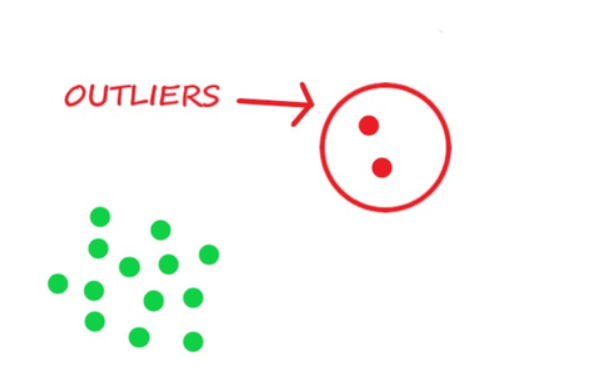Question: Does ax = bx imply a = b in any vector space? Justify. Let v = \({(a_1, a_2):a_1, a_2 \in f}\) where f is field. Define addition of elements of v coordinate wise, and for \(c \in f\) and \((a_1, a_2) \in V\) . Define \(c(a_1, a_2) = (a_1, 0)\). Is vector space over F with these operations? Justify your answer by taking all condition of vector space.
Solution: In any vector space ax = bx implies that a = b false
It is only true if we take x = 0
i.e ; ax = bx \
x(a – b) = 0 either x = 0 or ( a-b) = 0
take x = 0 and any a≠b for x.
Let us suppose \((a_1, a_2), (b_1, b_2) \in V\) then
\(V_{s1}: (a_1, a_2) + (b_1, b_2) = (a_1 + b_1, a_2 + b_2) = (b_1 + a_1, b_2 + a_2) = (b_1, b_2) + (a_1, a_2)\)
\(V_{s2}: [(a_1, a_2) + (b_1, b_2)] + (c_1, c_2) = (a_1, a_2) + [(b_1 , b_2) + (c_1, c_2)] \forall (c_1, c_2) \in f\)
\(V_{s3}: \exists (d_1, d_2) \in V\ s.t\ (a_1, a_2) + (d_1, d_2) = (a_1, a_2)\)
\((a_1, a_2) + (0, 0) = (a_1, a_2)\)
\((d_1, d_2) = (0, 0)\)
\(V_{s4}: \forall (a_1, a_2) \in V \exists (-a_1, -a_2) \in V\)
s.t \((a_1, a_2) + (-a_1, -a_2) = (0, 0)\)
\(V_{s5}: \forall \in F 1.(a_1, a_2) = (a_1 ,0) = (a_1, 0) ≠ (a_1, a_2)\)
Hence \(v_{s5}\) does not satisfy.
\(V_{s6}: \forall x, y \in F\ xy(a_1, a_2) = x(ya_1, 0)\)
\(V_{s7}: \forall x, y \in F\)
\((x + y)(a_1, a_2)\)
= \([(x + y)a_1, 0]\)
= \([xa_1 + ya_1, 0]\)
= \((xa_1, 0) + (ya_1, 0)\)
\(V_{s8}: \forall x \in f\)
\(x[(a_1, a_2) + (b_1, b_2)]\)
=\(x[a_1 + b_1, a_2 + b_2]\)
=\([x(a_1 + b_1), 0]\)
=\((xa_1, 0) + (xb_1, 0)\)
=\(x(a_1, a_2) + x(b_1, b_2)\)\
\(V_{s5}\) does not satisfy it is not vector space.
Question: Does ax = bx imply x = y in any vector space? Justify. Let v denote the set of ordered pairs of real numbers.if \((a_1, a_2)\) and \((b_1, b_2)\) are element of v and \(c \in R\) , define \((a_1 , a_2) + (b_1 , b_2) = (a_1.b_1, a_2 + b_2)\) and \(c(a_1, a_2) = (a_1, ca_2)\). Is v a vector space over R with these operations ? Justify your answer by showing all conditions of vector space.
Solution:
In any vector space ax = ay implies that x = y is false.
It is only true if we take a = 0
i.e; ax = ay a(x – y) = \(0 \in V\)
either a = 0 , or ( x – y) = 0 if we take a = 0 and any x ≠ y for a.\
Second part
Here v denote the set of ordered pairs of real numbers. If \((a_1, a_2) and\ (b_1, b_2)\) are element of v and \(c \in R\),define \((a_1 , a_2) + (b_1 , b_2) = (a_1.b_1, a_2 + b_2)\) and \(c(a_1, a_2) = (a_1, c.a_2)\).
\(V_{s1}: (a_1, a_2) + (b_1 , b_2) = (a_1.b_1, a_2 + b_2) = (b_1.a_1 , b_2 + a_2) = (b_1, b_2) + (a_1, a_2)\)
\(V_{s2}: \in [(a_1, a_2) + (b_1, b_2)] + (c_1, c_2) = (a_1.b_1, a_2 + b_2) + (c_1, c_2)\)\
= \((a_1.b_1.c_1 , a_2 + b_2 + c_2) = (a_1, a_2) + (b_1.c_1 , b_2 + c_2) = (a_1, a_2) + [(b_1, b_2) + (c_1 , c_2)]\)
\(V_{s3}: \exists (d_1, d_2) \in V\)
s.t \((a_1, a_2) + (d_1, d_2) = (a_1, a_2)\)
Or,\((a_1.b_1 , a_2 + b_2 ) = (a_1 , a_2) \Rightarrow a_1.b_1 = a_1 \Rightarrow b_1 = 1\)
Also,\(a_2 + b_2 = a_2 \Rightarrow b_2 = 0\)
Hence \((d_1, d_2) = (1, 0)\)
so, \((a_1, a_2) + (d_1, d_2) ≠ (a_1 , a_2)\)
\(v_{s3}\) does not satisfy.
\(V_{s4}: \forall (a_1 , a_2) \exists (-a_1, -a_2) \in V\)
s.t \((a_1, a_2) + (-a_1 , -a_2) = [a_1.(-a_1) , b_1 + (-b_1) ] = (-a_1^2, 0)≠0\)
Hence \(v_{s4}\) also not satisfy.
\(V_{s5}: for 1\in R 1.(a_1, a_2) = (a_1, 1.a_2) = (a_1, a_2)\)
\(V_{s6}: \forall x, y \in R\)
\(xy(a_1, a_2) = x(a_1, ya_2) = x[y(a_1, a_2)\)
\(V_{s7}: \forall x, y \in R\)
\((x + y) [(a_1, a_2) + (b_1 , b_2)] = (x + y)(a_1, a_2) + (x + y) (b_1, b_2)\)
L.H.S = \((x + y)(a_1.b_1, a_2 + b_2)\)
= \([a_1.b_1 , (x + y)(a_2 + b_2)]\)
=\([a_1.b_1 , (x + y) a_2 + (x + y) b_2]\)
R.H.S = \([ a_1 , (x + y)a_2] + [b_1 , (x + y)b_2]\)
= \([a_1.b_1 , (x + y)a_2 + (x + y) b_2]\)
L.H.S = R.H.S
\(V_{s8}: \forall x \in R\)
\(x[(a_1, a_2) + (b_1, b_2)] = x(a_1, a_2) + y(b_1, b_2)\)
L.H.S
= \(x[ a_1.b_1 , a_2 + b_2]\)
= \([a_1.b_1 , x(a_2 + b_2)]\)
= \([a_1.b_1 , xa_2 + xb_2]\)
R.H.S
= \((a_1 , xa_2) + (b_1 , xb_2) = (a_1.b_1 , xa_2 + xb_2)\)
L.H.S = R.H.S
Here \(v_{s3}\) and \(v_{s4}\) are not satisfy. Hence it is not vector space.



Comments